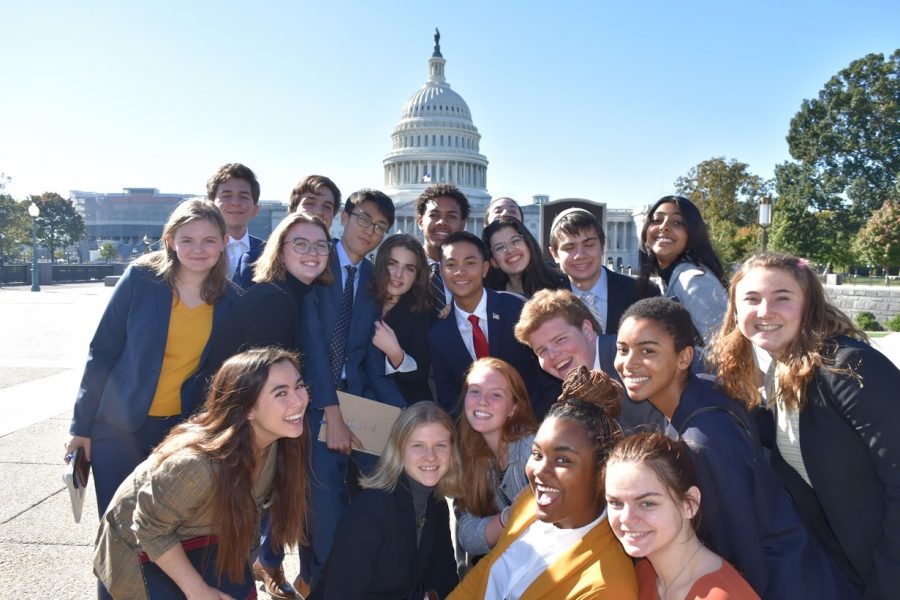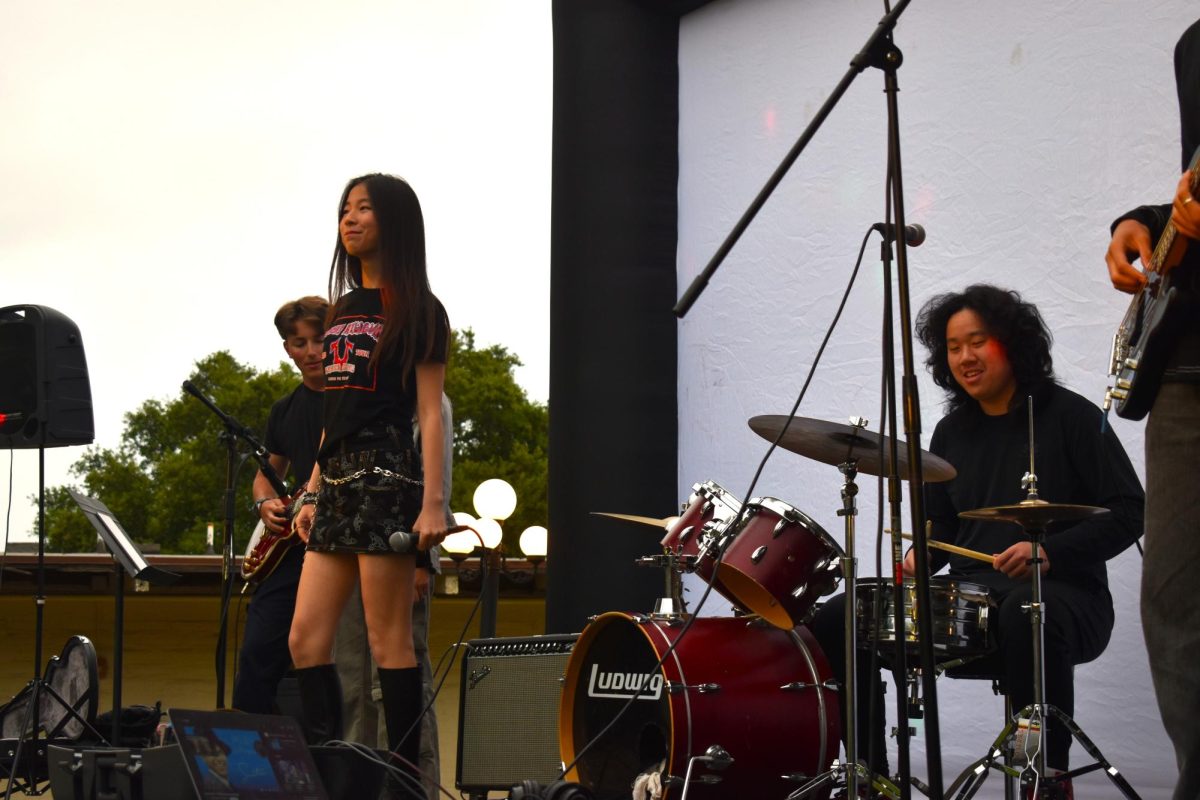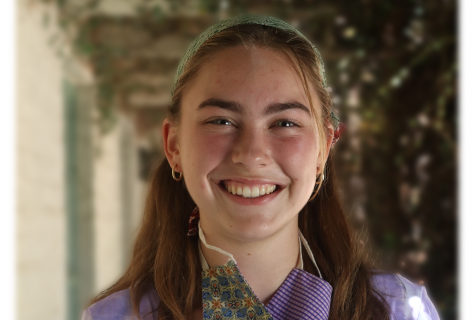Throughout your time at Webb, you may notice classmates disappearing inconspicuously for a semester during junior year. These students are most likely spending that time at a semester school: four–month long specialized programs that operate independently and in partnership with Webb.
These schools offer their students incredibly unique experiences than cannot be found anywhere else.
For non-boarding students, these schools are a first chance at living away from home before college, a core feature of semester school programs. It is a first taste of living independently. As Webb consists of mostly boarding students, we already have boarding experience; we live independently, we wash our sheets, we do homework on our own, and decide what to do on weekends. For us, the boarding aspect is largely irrelevant. But what makes semester schools truly unique is their curriculum.
“They offer programs that we do not offer,” said Dr. Susanna Linsley, Director of Experiential Learning.
Historically, Webb has had consistent relationships with three semester programs: The Mountain School, in Vermont; the School for Ethics and Global Leadership, in Washington D.C; and School Year Abroad.
The Mountain School operates on an entirely self-sustaining farm, with 45 students living, working, and learning together. Students grow the food they eat, take care of livestock, and learn basic survival skills, all on a campus surrounded by forest in rural Vermont.
The School for Ethics and Global Leadership (SEGL) gathers 24 students each semester that reflect the diversity of the United States in the nation’s Capital. Students speak to national and international leaders and have experiences exclusive to Washington, D.C.
School Year Abroad is more of a classic program, where a student may visit another country, stay with a host family, and have an immersive experience in another culture. There are programs available to visit France, Spain, or Italy. For students who might not want to go away for an entire semester, SYA also offers summer terms, and for students who want to stay longer, there are also yearlong terms.
In past years, Webb has hosted representatives from these programs to come and advertise to students, but Webb’s experiential learning administrators decided to stop the advertisement. The decision essentially keeps students in the dark about the variety of opportunities outside of Webb. Additionally, for students who chose to apply to these programs, missing out on communicating with representatives may place them at a disadvantage in the admissions process.
The choice came as the newer Webb Humanities and Science elective curriculum was becoming more stable.
“The focus of [the Webb] program is our elective program, and it makes us pretty special,” Dr. Linsley said. “We do not want our efforts to go towards encouraging people to go away, because we really see the program that we have developed as a four-year comprehensive program. We think it is very innovative, we think it is unique, and that is what we want students to come here for.”
The Webb experience is viewed holistically, with various new opportunities presenting themselves at each grade level. A major aspect of this is the ability for students to customize their curriculum in their junior and senior years. To attend a semester school in one’s junior year is to depart right when Webb starts to get interesting.
“These [schools] are unique programs that offers students a really wonderful experience,” Dr. Linsley said. “But it does come at a cost of taking you away from a four-year comprehensive experience.”
The choice to prioritize the robust junior and senior year elective program, which is seen as a key tenet of the Webb experience, over these external experiences is also, in part, due to the relatively limited number of students who demonstrate interest. The 2019-2020 school year saw the most students ever depart for a semester, with four members of the class of 2021 choosing to spend part of their junior year at either SEGL or The Mountain School; but it is not uncommon for several years to pass between instances of this happening.
Another part of Webb life to consider is leadership. Typically, students apply for leadership positions their sophomore year, the same time they would be applying for semester programs. If a student is offered a leadership positions, but chooses to go abroad, they must give up any major leadership positions they have.
Besides that, semester school students miss things like Theme Nights, Halloween, the Holiday Poem, Webb Day, etc, and even Prom. To participate in these events is to be an active member of the community, another heavily emphasized aspect of the Webb community.
“It requires missing out on things that happen here,” Dr. Linsley said.
Losing these experiences can create some hesitation in students that are otherwise interested in the programs, even deterring them from applying all together. But for the students that chose to take the opportunity, losing one out of the eight semesters of high school was worth it.
“I honestly do not think there are many drawbacks, but junior year is a very busy time for most people and there is a lot of apprehension about what you might miss out on,” Patrick Dóñez (‘21) said. “It is important to remember that you are going to have a very unique and special experience, and I would not let ‘missing out’ get in the way of your choice.”
“I attended the School for Ethics and Global Leadership my junior spring and it was undoubtedly the most defining four months of my life,” Anne Jiang (‘18) said. “It transformed me from someone who cared about the world to someone who had the tools to make it better.”
“I had many hesitations initially,” said Nora Estrada (‘21), a student at Winsor Acadamy is Boston, Massachusetts, who attended SEGL in the fall of 2019. “My home school is a very tight-knit community, and there are many junior year traditions that I did not want to miss; I was mostly scared of feeling as though I were missing out on opportunities at home. It was absolutely worth it though. Looking back on it, I cannot imagine not having gone to semester school and I know I got so much more out of my semester there than I would have at my home school.”
The bigger challenge for students may be academic. Though Webb’s humanities classes operate on a semester system, students would be entering or leaving their science, language, and math classes halfway through the year. This often limits students to only being able to take the science and language classes offered at their semester school, and even then, there can be inconsistencies in the curricula. These inconsistencies are not a Webb-specific issue either.
“Returning to my home school was far more difficult than leaving it,” Nora said. “Some of my classes were year-long courses that I had to join midway through, and although I technically took the same classes at SEGL, there was some material I had not learned or covered yet. Transitioning back into my school socially was fine, but it definitely took me a while to fully reintegrate and feel at home at my school again.”
Despite the difficulties, semester schools have proven themselves not only to be unique experiences, but also formative ones.
“I learned how much I was missing the intimate connection with nature that you have when you are totally embedded in the mountains and in the forest,” Patrick said about his time at the Mountain School. “I think at Webb people tend to overlook that because of how busy everybody is with class. Being able to appreciate and really look and listen to the world outside me was a huge opportunity for me.”
“SEGL gave me a lot of experience about what life would be like living in DC and working in policy or diplomacy, which are things I’ve considered,” said Jonas Rosenthal (‘21), a student at Denver Jewish Day School in Colorado, who also attended SEGL in Fall 2019. “It also exposed me to a lot of new people and made me more comfortable going out from my community.”
Sadly, many students who attend semester schools concede that, since each program is incredibly specialized, they could not be replicated anywhere else than where they are. However, these students also believe that there are certain parts of their semester school experiences that their home schools could emulate and benefit from.
“I think there are sort of broad concepts that Webb could strive to integrate, like this idea of place-based learning,” Patrick said. “Webb is a very beautiful place, and it has this very special environment around it. I think that people tend to overlook that because they are too busy with other things. If people took more time to understand and appreciate the environment that they are spending all their time in, and Webb did something to encourage that, I think people would be a little bit happier and more content with their school experience.”
“I think a big part of SEGL specifically was being in DC, and being in a small cohort,” Jonas said. “Definitely some aspects, like guest speakers, simulations, and the group projects could be emulated, which would be good for everything.“
That being said, these programs offer educational experiences to very specific types of students, with relatively few students in each semester class. Webb strives to offer the best four-year experience possible to each student, requiring a much more generalist approach. Webb prides itself on its interdisciplinary curriculum, while many semester school programs place more of their resources into a specific subject.
“You do not go to the Mountain School because you are excited about their science curriculum, you go to Mountain School because you are excited about the way you are going to have a comprehensive outdoor education,” Dr. Linsley said. “You come to Webb because of our opportunities for leadership, residential life, and interdisciplinary program.”
“SEGL is something that very much shaped the way in which I care for others as well as my academic focuses,” Anne said. “I strongly recommend semester schools to Webb students who want a more specialized educational experience or want to gain a wider perspective on the world outside the Webb bubble.”
So, if you are looking for a new opportunity for experiential learning in an out of the ordinary way, look into a semester school. Webb will still be here when you get back.
Note: Due to the fact that all semester school attendees still at Webb are in the journalism program, WCC made an exception to quote Head Editor Patrick Dóñez, and feature Editor of News Keigan McCullagh in the graphic.
















